Scuba Diving has a massive attrition rate; the percentage of people who having achieved their Open Water Certificate never dive again is high, estimates range between 50-80%. Nobody knows the real number because after that initial certification from the official agencies people may never again come within the record keeping sphere, they are free to dive anywhere that will take them on the basis of that certification and their degree of participation in the sport isn’t officially recorded until they again undertake some form of official training.
The vast majority of divers are holiday divers, happy to take a dive in warm water when they can without going to the expense of acquiring their own equipment (let alone trying to include it in their stingy airline luggage allowance!) or investing the time and money needed for advanced training. There is nothing wrong with that, Turkey has beautiful warm water and a variety of easy dive sites that the holiday diver can enjoy to their heart’s content, but it’s not enough for me.
When I decided to learn to dive I hoped I wouldn’t stop at a basic Open Water certificate. When I started actually diving I became determined to take as many qualifications as I could. Diving is really accessible, I would happily take my 74 year old Father on a Discover Scuba Dive with Active Blue, he’d love it and he could cope with it, easily, but to get the most out of the undersea world you need certain skills and they need to be automatic and they need to be learnt and practised and maintained. I see a lot of rusty divers and I see a lot of divers that despite their dive guides advice are unwilling to take a refresher course and I see the difference underwater between them and the divers who have practiced and honed their skills over time and I know which kind of a diver I want to be.
No dive guide anywhere in the world is going to be dragging me around a dive site like a sack of potatoes! I’m going to learn to do this properly and enjoy it to the max.
All of the Scuba agencies offer advanced training, the Open Water Certificate really is very basic and the skills you start to acquire by taking it need perfecting and the agencies know that. I’m certified with SSI – Scuba Schools International – and they combine experience (the number of dives you have taken) with formal courses to teach you the skills you need to expand your diving horizons.
My inner geek loves formal training, it loves reading books and passing exams and fitting all the information into the gradually growing more detailed picture of my diving world. My inner adventurer loves the experience dives that take me off of my home reef and into caves and down into deep water.
The day I passed my Open Water I signed up for five more SSI diving courses to keep my geek adventurer happy:-
Navigation:- I have a little bump of direction, I can feel north, but underwater it is easy to get disorientated and the navigation course, which is heavy on skills of natural navigation, is really useful to get you into the habit of picking out landmarks underwater and following them. The compass work is basic but useful and the habit of using the compass on your console to orientate yourself is a good habit to develop.Perfect Buoyancy:- If your buoyancy is rubbish your diving is hard work and you run the risk of damaging beautiful reefs by crash landing on them and you’ll never be in control underwater. I want to fly underwater, I want to hover centimetres above something to photograph it and so I need perfect buoyancy. Once you get buoyancy right diving becomes very zen, very easy, very calm, you control your place in the water by your breathing and it’s a beautiful feeling, it’s like yoga without the painful stretching 🙂
Underwater Photography:- Learning to photograph underwater and working on improving it will probably take up the next ten years of my life and an awful lot of disk space. The difference between what you see underwater and the photographs you come home with is massive. The photos are normally a huge disappointment. You don’t need to spend a fortune on kit to get great photos underwater but you do need to learn how depth effects light, which settings on your camera work best and how improving basic diving skills impacts on your photography. This course gives you the basics and reduced my howls of frustration on reviewing my dive photos to manageable levels.Deep Diving:- My inner geek likes deep diving, it likes learning the physiology and physics of it, how depth effects my body and my dive plan. I’m so geeky I even built a spreadsheet to monitor my air usage at depth where you use air much faster than in shallow water and I am in love with my Oceanics dive computer that feeds me facts and figures whilst I dive. It’s not that I want to plumb the depths of the oceans it’s just that deep diving allows you to go beyond the shallows if you want to and learning about it gives you a better understanding of the physics of the sport and why the limits are where they are.
Stress and Rescue:- I’m a grown up, it’s probably my most defining characteristic, I make responsible choices and I take responsibility for myself and for me to choose to dive without being prepared for what can go wrong would be, to me, fundamentally foolish. As a result the Stress and Rescue course was a “must take as soon as possible” and probably repeat at various points in the future. Right now I’ve taken the academicals and the written test and I’ve endured part one of the practical where during a self rescue test my instructor knocked my mask off and then unknown to me turned my air off as I retrieved and cleared my mask. It wasn’t a walk in the park but it taught me things I really needed to know not least that the training works, when things go wrong your response is automatic. I still have part two to endure but I am bloody glad I am taking it – quick prayer to the gods under the sea “May I never need it!”
In case you wonder how I manage all these diving courses in a country like Turkey where the native language is not English all of my instruction is in English and all of the SSI teaching materials, videos and text books are in English. There is no language problem in taking your diving career further in Turkey.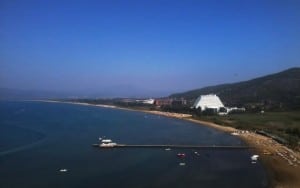
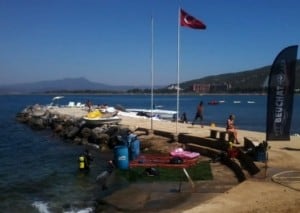
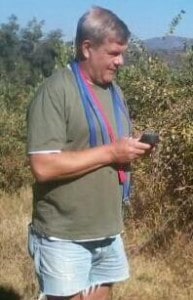
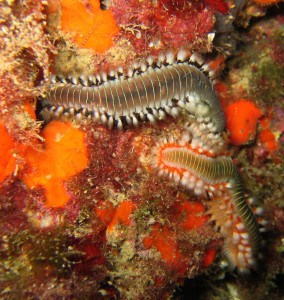
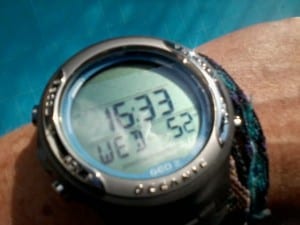
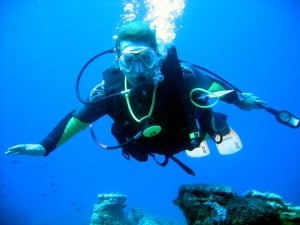
You are obviously totally hooked now, Karen, but looking at that beautiful photo I can easily see why. 🙂 I look forward to many more….
Yes totally hooked and likely to be writing lots of scuba posts and hope not to be too boring about it! Karyn
. . onwards and downwards!
I started diving back in 1963 Leo Zanelli was my instructor. It was with BSAC which I been with ever since through London No 1 Branch, Mersyside N0 5 Branch, Leeds N0 115, back to Mersyside now as a Social member but am still on the commitee of the NORFED which is now 54 years old with out annual dinner on the 3rd Novemeber 2012 being the held Yorkshire. I would love to dive now but health will not allow me to. Love to keep in touch. Geoffrey Prince 1st class diver and diving & boat handling instructor. Ex RNLI crew member 1974 – 1992
Nick is BSAC trained and I have all their text books so I combine my current course material with the BSAC Sport Diving, Advanced Sport Diving and Safety and Rescue Diving manuals – my copies are quite old, the information doesn’t change but the fashions certainly have! By the way, much love to the RNLI, I come from a sailing family in Fishguard in West Wales and my family have always been staunch supporters of the RNLI. Karyn
I am possibly one of only a few Open Water divers who 24 years after they learnt to scuba dive, still, to this day is not only ‘still an Open Water certified Diver’ but operates his own business as an underwater photographer. When I did my PADI Open Water course in February 1988 I always knew I wanted to be an UW Photographer and now I reckon I travel more than ever before and my wife of 2 years, who is also my model (out of love for me) we travel the world, most often to a tropical destination – so there’s a guarantee we will go diving. Our favorite destination we visit every May is Tulamben in Bali…. a great place to dive from the shore, a massive wreck, a great shallow reef and an incredible wall dive with huge gorgonians, sharks, and the list goes on!
My website, seapics.com.au is a name I created in 1990, and soon after I also started southern Australia’s first dedicated UW Photography Club – which at its peak had 40 members, but that was back in the days when we all used film, 10 years before any of us had a digital camera. There are some great memories of those days before we were all married and having children. Those were great days!!
I have worked as a graphic designer for Australia’s leading scuba magazine, Sportdiving and to this day I still produce advertising for DAN Australia and I produce a quarterly glossy magazine for the Cave Divers Association of Australia and until 6 years ago I was Oceanic Australia’s full time graphic designer as well.
I love my working life – I photograph weddings as well, 700 to date, but yet to do one underwater!!
I have just finished my latest website design – seapics.com.au – take a look and send me an email – I’d like to know your thoughts… I did get this originally from LinkedIn so this response is in reply to the question about “When my inner geek meets my inner adventurer”.
I am now almost 44 and yes, very much a geek, especially when I try to dance – my wife asks me to stop right away and insists if I am to dance I need urgent lessons…. it’s a good thing I can take quality underwater photographs.
Everyone has to be good at something – thanks for reading… keep safe everyone,
David Bryant,
Melbourne, Australia.
Karen….
I know I rambled on a bit with my reply (above) – I wish you all the very best with your diving. Whether you are an Open Water diver or the most experienced Instructor it only makes a difference for yourself – I have been fortunate to have met and personally known some of THE most experienced divers on the planet, only to hear that in their 50’s or 60’s they die when they are diving.
Wes Skiles was a world renowned Cave Diver but he died in 2010 on a relatively shallow dive… he was an utter professional and his cinematography was viewed by millions of people around the world – why his body gave in, I guess we will never know.
All I’m saying is, enjoy your diving, no matter how deep or shallow you dive to, and be very, very careful, life is so precious… all the training and scuba courses will just allow you to dive deeper or possibly dive under arctic ice… and most of it is for self accomplishment.
I do hope to be still diving well into my 70’s or 80’s – I actually think I will because I am only an Open Water diver – I like being shallow and I like to wear a thinner wet suit and a smaller tank. Chances are I will be one of the few still diving 20 years after I retire.
So Karen, go for broke with all the dive courses but most of all, enjoy every moment under water… it’s a better place than what is above and if that’s what heaven is like then the after life is looking pretty damn good!… Whether it be in 3 metres of water under a jetty or 50 metres on a WWII shipwreck, just make the most of life – keep safe and enjoy every minute of it – oh, and write about your adventures so the world is inspired by it.
All the best, Dave Bryant.
No problem with the length of the posts David! I agree with you, I dive with guys who are basically, through love of what they do, destroying bits of themselves. These are guys with 5000, 6000, 7000 dives and the constant wear on the sinuses really tells and god knows what those tiny nitrogen micro bubbles are doing to their bones long term. But that said, I’ll still take every course I can because I want to learn more and I may not get to dive every corner of the world but at least I’ll know how, in theory. I did intend to stop at AOW Rescue Diver but I thought today, bugger it, I’m going to get to DiveCon and see how I feel then. I watched my husband die in front of me when he was 50 years old, he literally dropped dead, everything I learn now and do now is because he can’t and if I make it as far as fifty then anything else is a bonus, it’s more than he got, so I kinda have to keep on learning 🙂 I look forward to taking my time looking through your pics when I am not as tired as I am now – 2nd day of Rescue Diver open water dives, and I think I may sleep for a week! Karyn